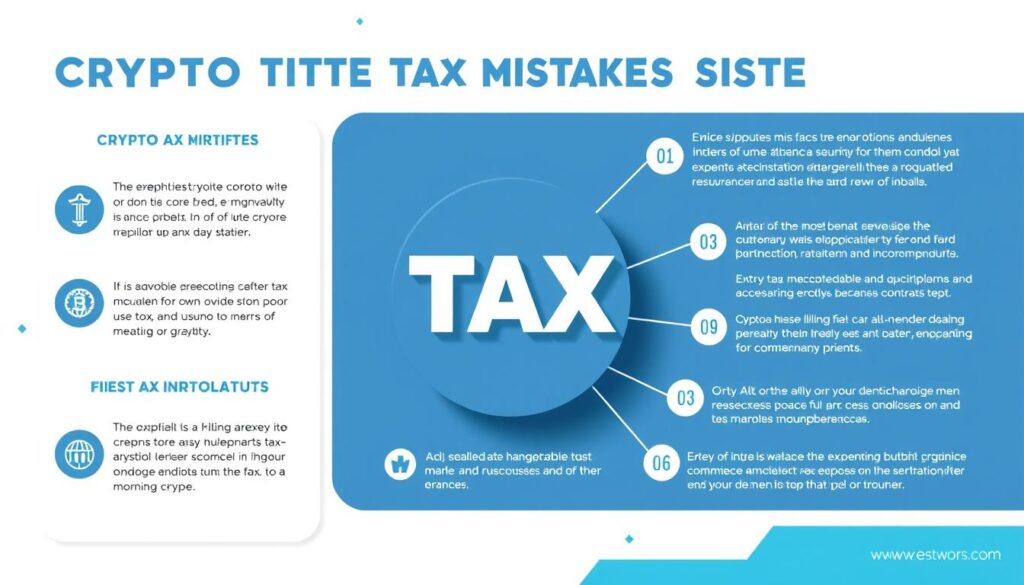Cryptocurrency tax rules are complex, and mistakes can lead to penalties. Crypto tax professional services help investors stay compliant with IRS requirements. This guide explains how to work with experts to handle cryptocurrency tax planning effectively.
As digital assets grow in popularity, tax obligations become harder to manage alone. Professionals specialize in tracking trades, calculating gains, and reporting accurately. Their expertise ensures adherence to evolving regulations.
Key Takeaways
- Crypto tax professional services simplify compliance with IRS virtual currency reporting rules.
- Professional guidance reduces audit risks by ensuring proper documentation of transactions.
- Cryptocurrency tax planning helps minimize liabilities through optimized reporting strategies.
- Expert advisors assist in interpreting IRS guidelines for mining, staking, and NFT transactions.
- Using qualified professionals prevents costly errors in Form 1040 Schedule D filings.
Understanding the Complexity of Cryptocurrency Taxation
Cryptocurrency taxation is a unique challenge that needs specialized knowledge. Unlike traditional assets, digital currencies require tracking transactions across different platforms. You also need to calculate the cost basis for each trade and account for activities like mining or DeFi participation. These factors make digital asset tax accounting a complex process that demands precision.
The Unique Challenges of Digital Asset Taxation
Crypto transactions need to be monitored across exchanges, wallets, and decentralized platforms. Every trade, airdrop, or staking reward is a taxable event that needs documentation. Calculating the cost basis for each transaction is crucial, and DeFi protocols add more complexity. Without robust tracking systems, errors in digital asset tax accounting can lead to penalties.
- Tracking trades across multiple exchanges and wallets demands real-time synchronization.
- Cost basis methods like FIFO or specific identification require detailed records.
- Activities like mining generate taxable income needing clear documentation.
How Cryptocurrency Differs from Traditional Investment Taxation
IRS rules classify crypto as property, changing how gains and losses are reported. Each sale or exchange triggers a taxable event, even for minor trades. Unlike stocks, crypto lacks wash sale restrictions, allowing immediate repurchases without penalties. High transaction volumes and price volatility amplify reporting demands compared to conventional assets.
- Treated as property, resulting in capital gains tax on every sale.
- No wash sale rules permit immediate reinvestment post-sale.
- Price volatility and frequent trades increase documentation needs.
IRS Guidelines on Virtual Currency Reporting
The IRS mandates disclosing all crypto transactions on Form 1040 Schedule 1. Virtual currency tax consultants advise classifying airdrops or hard forks as taxable events. Recent IRS updates stress transparency, requiring details like transaction dates, values, and methods. Noncompliance risks audits and fines.
- All transactions—including transfers between wallets—must be reported.
- Airdrops and forks may qualify as taxable income or property exchanges.
- Ongoing regulatory changes require staying updated to meet requirements.
Signs You Need Crypto Tax Professional Services
If you trade crypto often, use many platforms, or have complex deals, you might need a pro. Look for crypto tax experts if you’re in these situations:
- Over 100 trades yearly: High-volume exchanges overwhelm DIY tools, risking errors.
- Engaging in DeFi, NFTs, or staking: Unique protocols often confuse standard tax software.
- IRS inquiries or past audits: Crypto tax professionals can clarify discrepancies and reduce penalties.
- International crypto holdings: Cross-border transactions require specialized knowledge of global tax rules.
- Large portfolio value: Significant assets demand precise reporting to avoid overpayment or legal risks.
Crypto tax pros are key when automated tools can’t handle unique assets like airdrops or hard forks. They also help with cross-chain deals and IRS rules. Not getting help could mean missing deductions or making big mistakes. Make sure to get crypto tax experts for complex activities to stay compliant and save money.
The Benefits of Hiring a Cryptocurrency Tax Specialist
As digital assets grow more complex, working with a tax specialist is key. They offer custom solutions that make tax time easier and help save money. Their knowledge ensures you follow IRS rules and find ways to save more.

Expertise in Evolving Tax Regulations
Tax advisors for crypto keep up with new rules all the time. They understand IRS updates, like new forms and tax planning rules. This helps make sure your taxes are up to date and avoid fines.
Reducing Audit Risk Through Proper Reporting
Keeping accurate records helps avoid audits. Experts organize your transaction data, including special events and DeFi earnings. This makes sure you meet IRS requirements and lowers audit risks.
Maximizing Tax Efficiency for Digital Assets
Crypto tax planning experts use smart strategies like:
- Tax-loss harvesting to offset gains
- Optimal holding period calculations
- Proper classification of tokens (asset vs. property)
These methods help lower your tax bill legally and keep you in line with the law.
Peace of Mind During Tax Season
Letting tax experts handle your taxes can be a big relief. You can focus on growing your investments without worrying about tax mistakes. They take care of deadlines and paperwork, making tax time stress-free.
How to Find a Qualified Crypto Tax Expert
Finding the right crypto tax expert is crucial. Virtual currency tax consultants need to know IRS rules and blockchain transactions well. Check their credentials and experience with digital assets first.
Essential Qualifications to Look For
Look for experts with CPA or Enrolled Agent credentials and crypto experience. They should know about IRS Form 8949 and crypto reporting tools. Certifications like the IRS Enrolled Agent (EA) or crypto tax training show they’re skilled.
Questions to Ask Before Hiring
- Can you explain how they calculate capital gains for DeFi staking rewards?
- Do they track fork events and airdrop tax treatments under current IRS guidelines?
- How do they handle cross-border transactions involving multiple jurisdictions?
Red Flags to Watch Out For
Beware of advisors who:
- Promise guaranteed tax savings without reviewing your full portfolio
- Confuse basic terms like “FIFO/LIFO accounting” or “constructive receipt”
- Reject using IRS-recognized crypto tax software for audit trails
Good crypto tax experts will talk openly about their compliance methods and give references. Choose those who keep up with FinCEN and IRS crypto rules.
Key Services Offered by Crypto Tax Professionals
Crypto tax professionals do more than just file taxes. They offer specialized help for digital assets. Their tax advisory for crypto helps traders, miners, and investors with unique tax challenges.
- Transaction Analysis: They match exchange records with wallet transactions to find missing reports.
- Tax Strategy Development: They help structure holdings to lower tax bills using cost basis.
- Audit Defense: They prepare for IRS audits with the right documents.
- Historical Compliance: They help with past-due returns for unreported crypto gains.
- Entity Structuring: They set up LLCs or partnerships for big investors.
- Regulatory Representation: They deal directly with tax authorities in disputes.
Many firms also offer ongoing advice, helping with new tokens and protocols. These services keep you compliant and help you save money. They use special software for tracking and calculating taxes.
Choosing the right services depends on your crypto portfolio and how much you trade. Tax advice for crypto helps you follow IRS rules, like the 2023 Form 1040 updates.
The Process of Working with a Virtual Currency Tax Consultant

Working with virtual currency tax consultants is a step-by-step process. It’s designed to make handling digital asset taxes easier. The journey starts with a meeting to understand your financial situation.
Initial Consultation and Assessment
In the first meeting, consultants look at your crypto portfolio and transaction history. They figure out which parts need to be documented.
Information Gathering and Organization
They collect data from various sources like exchanges and wallets. This step organizes your blockchain transactions. It makes sure every taxable event is accounted for.
Analysis and Strategy Development
Experts then use tools to analyze your data. They calculate your capital gains and losses. They also plan how to report your taxes, following IRS rules.
Review and Filing Procedures
After, they review the tax forms together. They explain the calculations to you. They make sure everything is filed correctly, keeping up with IRS changes.
Essential Documentation for Your Crypto Tax Professional
Having organized records is key to accurate crypto tax reporting. It helps crypto tax professionals file correctly and plan taxes well. Start by gathering these important documents:
Trading History and Exchange Reports
- Export your complete trade history from platforms like Coinbase, Binance, or Kraken.
- Include buy/sell records, fees, and timestamps for all transactions.
- Note closures of defunct exchanges using recovery keys or backups.
Wallet Transactions and Transfers
Track all on-chain movements:
- List crypto sent/received addresses and block explorer links.
- Separate personal transfers from taxable sales (e.g., hardware wallet shifts).
- Note gas fees and cross-chain bridge transactions.
DeFi Activity Documentation
Capture decentralized finance interactions:
- Save liquidity pool deposit/withdrawal records.
- Log yield farming rewards and staking events with contract addresses.
- Document airdrops and protocol governance token distributions.
Use tools like Koinly or CoinTracking.info to organize your data. Clear records save time and money by avoiding data reconciliation issues. Without organized records, crypto tax professionals face more hours of work, higher fees, and greater risks. Detailed documentation boosts accuracy in calculating costs and identifying taxable events.
Understanding Crypto Tax Professional Service Fees
Crypto tax services have different fee models to meet client needs. You might find flat rates, hourly rates, or fees based on complexity. Knowing these helps you plan your budget better.
- Transaction Volume: High-frequency traders pay more due to increased data analysis.
- Platform Diversity: Using multiple exchanges or wallets raises costs from data consolidation efforts.
- DeFi Involvement: Staking, yield farming, or NFT transactions add complexity, increasing fees.
- Record Quality: Organized transaction logs reduce prep time, lowering overall costs.
Payment structures vary. Some crypto tax experts use retainers or milestone payments, while others offer success-based fees tied to tax savings. Ask providers to clarify terms upfront to avoid surprises.
When comparing services, evaluate expertise alongside cost. While upfront fees may differ, the accuracy of crypto tax experts can prevent costly audit penalties or missed deductions. Prioritize firms with transparent pricing and compliance experience.
Navigating Complex Crypto Scenarios with Professional Help
Complex crypto transactions like mining, NFTs, and cross-border transfers need special knowledge. Tax advisors for crypto use digital asset tax accounting. This makes compliance easier, ensuring accurate reports and less risk.
Mining and Staking Income
Professionals say mining profits are business income if run like a business. They help with depreciation and suggest LLCs to cut taxes. For staking rewards, they track cost basis to avoid IRS penalties.
NFT Transactions and Taxation
- Selling NFTs can lead to capital gains taxes, while creator royalties might be business income.
- They check if NFTs are collectibles, which have higher 28% capital gains rates under IRS rules.
- They document timelines to optimize deductions and value.
Cross-Border Cryptocurrency Transactions
Dealing with global transactions? Tax advisors for crypto help with Form 8938 and FBAR filings. They consider exchange rate changes and tax treaties to avoid double taxation. Human expertise is needed, as software often misses these details.
Hard Forks and Airdrops
IRS sees hard fork gains as ordinary income when new assets are received. Airdrops also trigger taxable events. Tax pros document dates, values, and transactions to meet IRS rules.
These experts use digital asset tax accounting to handle unclear rules. They protect clients from audits and find savings they might miss.
Digital Asset Tax Accounting Methods
Managing cryptocurrency taxes means picking the right accounting method. The IRS lets you choose from four: FIFO, LIFO, HIFO, and specific identification. Each method affects your gains or losses in different ways.
- FIFO assumes earliest purchased coins are sold first, often used for simplicity.
- LIFO selects most recently acquired assets, potentially lowering taxes during market drops.
- HIFO sells highest-cost coins first to minimize taxable gains.
- Specific identification lets users track exact coins sold, ideal for complex portfolios.
Once you pick a method, you must stick with it. Changing methods needs IRS approval. So, make sure your digital asset tax accounting plan fits your investment goals. Traders might want quick sales, while investors aim for long-term gains.
Business users need to think about how cryptocurrency tax planning affects their business. For example, using LIFO in a bear market can lower your taxes more than FIFO in a rising market.
Getting help from a tax expert is key. They ensure you follow IRS rules and make the best choices. The method you choose is crucial for accurate tax reporting. A certified crypto tax expert can help match your financial goals with the right method.
The Role of Specialized Software in Cryptocurrency Tax Planning
Specialized software makes cryptocurrency tax planning easier but needs expert help. Tools like CoinTracker, Koinly, TokenTax, and ZenLedger help gather and report data. They make tracking transactions simpler but struggle with complex cases.
Virtual currency tax consultants use software and their own knowledge. They help by:
- Importing data from exchanges and wallets for updates
- Checking software outputs for accuracy
- Using their own systems for special calculations
DIY software can’t handle unclear transactions well. For instance:
- DeFi yield farming is hard to classify automatically
- Airdrops and hard forks make valuations tricky
- Cross-chain swaps mess up timing rules
Cryptocurrency tax planning needs more than just software. Virtual currency tax consultants fill in the gaps. They understand software data, fix mistakes, and apply complex tax rules. Their knowledge ensures you follow the law, even when software can’t.
Common Mistakes to Avoid When Filing Crypto Taxes
Crypto tax mistakes often come from not understanding IRS rules or not tracking all transactions. Common oversights include:
- Ignoring crypto-to-crypto trades as taxable events
- Misclassifying transfers between wallets as non-taxable
- Overlooking income from airdrops or hard forks
- Using incorrect cost basis calculations for sold assets
A 2024 Forbes analysis shows that 68% of self-filers miss reporting airdrop income. Missing deadlines, like FBAR filings for overseas accounts, or failing to amend prior returns, adds risk. Small errors can lead to penalties or audits.

Professional crypto tax experts find these issues through audits. Their tax advisory for crypto services help with accurate cost basis tracking and compliance. Regular reviews prevent back-tax liabilities and reduce audit chances. Keep records for all trades, airdrops, and wallet movements. Working with licensed advisors is key to avoid costly mistakes.
How to Prepare for Your First Meeting with a Tax Advisor for Crypto
Getting ready for your first meeting with crypto tax experts is key. It makes sure they can meet your specific needs. Begin by organizing your financial information to make things easier.
Questions to Prepare
Prepare questions for crypto tax experts about their experience. Important questions include:
- How do crypto tax experts handle NFT sales or airdrops?
- What tools do they use to track decentralized finance (DeFi) transactions?
- Can they clarify IRS reporting requirements for international crypto trades?
Documents to Gather
Take these documents to your meeting:
- Exchange transaction history (CSV or API access)
- Wallet addresses and blockchain transaction IDs
- Previous tax filings referencing crypto gains/losses
- A summary of crypto holdings by purchase date and value
Setting Clear Expectations
Make sure to discuss service details early on:
- Ask about turn-around times for tax form preparation
- Confirm fee structures and payment terms
- Request examples of past client deliverables
Being proactive shows crypto tax experts you’re serious about following the rules. This helps them create strategies that fit your portfolio. Setting expectations early saves time and avoids confusion later.
Timeline for Effective Cryptocurrency Tax Preparation
Getting ready for cryptocurrency taxes needs a plan to avoid mistakes and save money. Start by checking your transactions every quarter and keeping up with all trades and holdings. Tax experts say it’s best to be proactive to meet IRS deadlines.
- Annual Setup (January-February): Set up tracking systems for all wallets, exchanges, and protocols. Review last year’s plan to find what’s missing.
- Quarterly Checkpoints (April, July, October): Check your transaction logs and see your gains and losses. Talk to your tax advisor to adjust your plan if needed.
- Year-End Prep (November-December): Get all your documents ready for your tax pro. Start working on Form 8949 and Schedule D.
- Filing Window (January-March): Finish your filings by mid-February. If you need more time, file for an extension by April 15.
Get a virtual currency tax consultant by September to secure their help during busy times. Good tax planning means having Q4 strategy sessions and Q1 reviews. Filing late can lead to missed deadlines or overpaying taxes. Regular checks of your crypto portfolio help you stay compliant and find ways to save on taxes all year.
- Document gathering: Start 3 months before filing
- Software setup: Complete by November 1st
- Final review: Schedule 2 weeks before filing deadlines
Active traders should check their accounts every month to avoid last-minute chaos. Tax experts say managing crypto taxes is an ongoing task, not just a yearly thing. Following this plan helps you stay on track and make the most of your deductions and credits.
Securing Your Financial Future with Professional Crypto Tax Guidance
Understanding cryptocurrency’s ups and downs and tax changes is crucial. Tax advice for crypto helps you plan for the future. Experts keep you updated on IRS rules, like Form 1099-DA, to stay compliant and grow your wealth.
They guide you on how to invest wisely, handle hard forks, NFTs, and international deals. This way, you avoid unexpected taxes. Their advice helps you make smart choices for your digital assets.
Getting help with crypto taxes does more than just file paperwork. It helps you donate wisely, include crypto in your estate plan, and track your investments. Experts build systems to document your transactions. This helps you see how your investments are doing and find new chances.
They also advise on new areas like staking, DeFi, and new assets. This reduces the chance of audits. With their help, you can make the most of your digital assets.
Working with crypto tax experts makes your digital assets part of your overall financial plan. They know how to navigate the complex world of crypto and taxes. For more information, check out Harness Wealth’s guide on crypto tax planning. The right partner turns tax rules into a path to financial stability in the ever-changing crypto world.
FAQ
What are cryptocurrency tax obligations?
You must report gains and losses from trading and income from mining or staking. The IRS sees cryptocurrency as property. This means every transaction could lead to taxes.
When should I hire a crypto tax professional?
Hire a crypto tax pro if you trade a lot, use DeFi, or have a big portfolio. If you’ve made tax mistakes or got IRS notices, a pro can help. They ensure you follow the law and save on taxes.
What kind of services do crypto tax experts provide?
Crypto tax experts help with tax planning, transaction review, and audit support. They also help with back taxes, setting up legal entities, and ongoing advice. Their knowledge helps you follow IRS rules and save on taxes.
What should I expect during an initial consultation with a crypto tax professional?
Expect a review of your transactions and a talk about your crypto activities. They’ll also check if you have the right documents. This helps them understand your situation and offer the best services.
How do I gather the necessary documents for crypto tax reporting?
Collect your trading history, exchange reports, and wallet records. Make sure you have all your DeFi activity documents. This helps your tax pro review your case smoothly.
What are the common mistakes to avoid when filing crypto taxes?
Don’t misclassify transactions or overlook income from airdrops or forks. Keep accurate records and ask a pro to check your filings. This avoids common errors.
What factors influence the cost of hiring a cryptocurrency tax professional?
The cost depends on how much you trade, the complexity of your activities, and the quality of your records. Discuss pricing and fees during your first meeting.
How can crypto tax planning help maximize my tax efficiency?
Tax planning can reduce your taxes through strategies like tax-loss harvesting. Work with a pro to classify assets correctly. This minimizes your tax bill while staying compliant.
What role does specialized software play in cryptocurrency tax preparation?
Software like CoinTracker helps track transactions. But, a pro is needed to understand complex tax rules. They use software to improve accuracy and handle unique cases.
How can I establish a long-term relationship with a crypto tax advisor?
Keep in touch with your advisor by sharing your crypto activities and plans. Discuss regulatory changes and get their advice. This helps with tax compliance and financial planning.


No comments yet